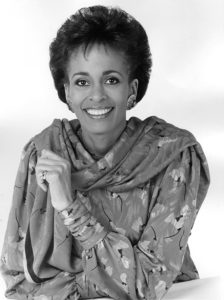Humanist Profile: Faye Wattleton

“In the name of morality and religion, these extremists have taken it upon themselves to return us to the days when the poor were expected to practice self-control while the rich practiced birth-control—or they were encouraged not to, in order to propagate a superior race.”
–1986 Humanist of the Year Faye Wattleton
Faye Wattleton was born in St. Louis, Missouri, on July 8, 1943. She was raised by fundamentalist parents who strongly valued community service. This background helped shape her decision to enter the nursing profession and, later, to become actively involved with family planning.
Wattleton worked her way through Ohio State University Nursing School, and after graduating in 1964 she taught maternity nursing for two years in Dayton, Ohio. It was there she first encountered and treated women who had had life-threatening abortions. In 1966 Wattleton enrolled at Columbia University where she earned a master’s degree in maternal and infant healthcare and a certificate in nurse-midwifery. During her internship at a Harlem hospital, she became keenly aware of the great need for birth control and for life-saving abortions. She also became a Planned Parenthood volunteer. In 1971 Wattleton was named executive director of Planned Parenthood in Dayton. She exhibited remarkable leadership, tripling the number of clients and more than doubling the budget.
Wattleton married jazz musician Franklin Gordon in 1972 and gave birth to a daughter, Felicia, in 1975. Dramatically affirming the motto, “Every Child a Wanted Child,” Wattleton returned to work after a short maternity leave and brought her daughter with her to the office every day.
In 1978 Wattleton was named president of the Planned Parenthood Federation of America, marking a departure from the succession of white, middle-aged, male executives. As president she was in charge of a women’s health system that served millions in the United States as well as a large international program operating in some 120 countries. For her dedication and success in educating the public at home and abroad on birth control, family planning, and the repercussions of population growth, Wattleton was named Humanist of the Year by the American Humanist Association in 1986.
In her acceptance speech Wattleton said she was honored to have one more thing in common with a “sister nurse and first leader of Planned Parenthood—Margaret Sanger” (who received the award in 1957). Wattleton also commented that the AHA and Planned Parenthood shared similar goals. “We share a deep respect for reason and for realism, for human life and for human rights…. In fact, there’s probably a great deal of controversy over which of our organizations Jerry Falwell would like to abolish first.”
During her tenure Wattleton shaped Planned Parenthood into a political force to protect reproductive rights in the face of conservatism brought on by the election of Ronald Reagan and the rise of the religious right. By the time she left the organization in 1992, it had more than 170 affiliates in forty-nine states and Washington, DC, and operated more than 800 health centers.
In a 2017 interview with W magazine, Wattleton was asked if she was surprised that Planned Parenthood was still under attack by conservative Christians and politicians. “The woman who founded Planned Parenthood went to jail seven times,” she responded. “The progression of this organization in advancing women’s possibilities has always been under attack.”
Faye Wattleton is the recipient of fifteen honorary doctoral degrees and numerous awards, including the Congressional Black Caucus Foundation Humanitarian Award and the Women’s Honors in Public Service from the American Nurses Association.
